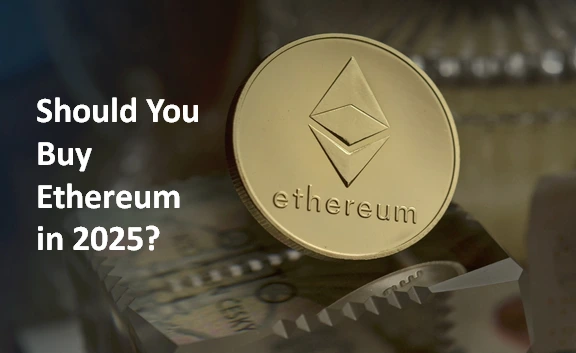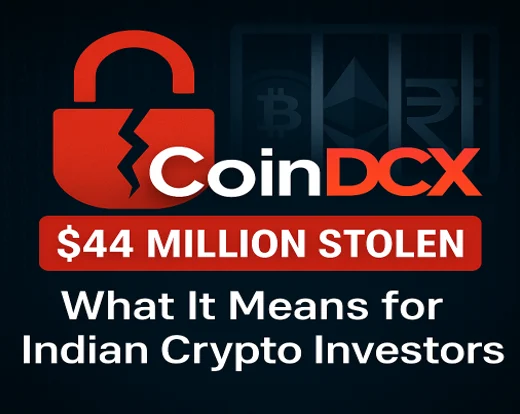
Should You Buy Ethereum in 2025? A Comprehensive Investment Analysis

As of today, Ethereum (ETH) is priced at $3,864.83 and remains a dominant force in the cryptocurrency ecosystem. With its smart contract capabilities, DeFi (Decentralized Finance) applications, and NFT (Non-Fungible Token) platforms, Ethereum has solidified its place as a market leader. As 2025 approaches, potential investors are asking the question: “Is Ethereum still a good investment?” Let’s dive into an analysis based on current data, trends, and projections.
Ethereum Today: A Quick Overview
Price: $3,864.83
Market Position: Ethereum is the second-largest cryptocurrency by market capitalization, trailing only Bitcoin.
Post-Merge Era: Since transitioning to Proof-of-Stake (PoS) through “The Merge,” Ethereum has shifted towards a more energy-efficient model, with staking replacing mining. This has also introduced deflationary mechanisms, burning a portion of transaction fees under EIP-1559.
Key Factors Driving Ethereum’s Investment Potential
1. Adoption of Ethereum ETFs
Ethereum Exchange-Traded Funds (ETFs) have gained momentum in 2023 and 2024, particularly in the U.S. and Europe. These ETFs provide institutional and retail investors with a regulated, hassle-free way to gain exposure to ETH.
Why it Matters:
The introduction of Ethereum ETFs has significantly increased ETH’s liquidity and market participation. Analysts predict that continued institutional adoption via ETFs could lead to further price appreciation in 2025. Additionally, Ethereum ETFs serve as a gateway for traditional investors to enter the crypto market without directly managing wallets or dealing with the complexities of blockchain.
2. Ethereum’s Deflationary Model
Post-Merge, Ethereum has introduced mechanisms to reduce its circulating supply. The burning of ETH via EIP-1559 combined with staking rewards ensures that Ethereum can become deflationary under certain conditions (e.g., high network activity).
Current Status: Ethereum’s net supply reduction has created a “store of value” narrative, comparable to Bitcoin’s limited supply. In 2025, continued deflationary pressures could further support ETH’s price as demand increases.
3. Scaling Solutions
Ethereum’s biggest challenge has historically been scalability, with high gas fees and slower transactions during periods of high network activity. However, Ethereum has aggressively tackled this issue with Layer 2 solutions like Optimistic Rollups, zkRollups, and sharding (scheduled for completion in the next stages of Ethereum’s roadmap).
What to Watch in 2025:
Increased adoption of Layer 2 solutions like Arbitrum and Optimism could reduce transaction costs and attract more users.
Completion of sharding could drastically improve network scalability, enabling Ethereum to handle thousands of transactions per second.
4. DeFi and NFTs: Continued Growth
Ethereum remains the backbone of the DeFi and NFT ecosystems. As of 2024, Ethereum powers over 60% of DeFi protocols and hosts the largest share of NFT marketplaces. Key applications such as decentralized exchanges (e.g., Uniswap) and lending platforms (e.g., Aave) rely on Ethereum’s blockchain.
2025 Outlook:
DeFi protocols are projected to grow as more traditional financial institutions integrate blockchain technology.
NFTs could find new use cases, including tokenizing real-world assets like real estate and intellectual property, further boosting Ethereum’s utility.
5. Competition from Other Blockchains
While Ethereum is the dominant smart contract platform, competitors like Solana, Cardano, and Avalanche continue to challenge its position. These blockchains offer lower fees and faster transactions, but Ethereum’s network effects and developer community remain unparalleled.
Risk Assessment:
Ethereum’s success in 2025 hinges on its ability to stay ahead of competitors by solving scalability issues and maintaining developer interest. However, the risk of losing market share to newer blockchains is not negligible.
Market Sentiment and Current News
Recent News Impacting Ethereum:
Institutional Interest: Major banks like BlackRock have begun incorporating Ethereum-related products into their portfolios, signaling a shift in traditional finance toward crypto adoption.
ETH Staking Growth: Over 28 million ETH are now staked, reflecting strong confidence in Ethereum’s long-term potential.
Regulatory Developments: While the SEC continues to scrutinize cryptocurrencies, Ethereum has avoided significant setbacks, particularly due to its decentralized nature and the emergence of ETFs.
Should You Buy Ethereum in 2025?
Reasons to Invest:
Strong Fundamentals: Ethereum has a proven track record, extensive developer support, and widespread adoption across multiple industries.
Deflationary Potential: Reduced supply combined with growing demand creates a bullish outlook.
Institutional Backing: ETFs and increased adoption by institutional investors add credibility and stability to Ethereum.
Scalability Improvements: Upcoming upgrades like sharding could resolve scalability challenges, enabling mass adoption.
Risks to Consider:
Regulatory Uncertainty: Stricter crypto regulations could impact Ethereum’s growth.
Market Volatility: Like all cryptocurrencies, Ethereum’s price is highly volatile and subject to macroeconomic conditions.
Competition: While Ethereum leads the pack, competitors are innovating rapidly.
Conclusion
Ethereum remains a strong investment candidate for 2025 due to its unmatched ecosystem, institutional adoption, and ongoing upgrades. However, it’s crucial for investors to consider the risks, especially in the volatile crypto market. If you’re looking to diversify your portfolio with a high-growth asset and can tolerate some volatility, Ethereum is a compelling choice.
Would you like further insights into staking, ETFs, or any other Ethereum-related topic? Let me know!
Disclaimer:
The information provided in this blog post is for informational purposes only and should not be considered financial, investment, or legal advice. Cryptocurrency investments carry a high level of risk, and past performance is not indicative of future results. Always conduct your own research (DYOR) and consult with a financial advisor before making any investment decisions.







